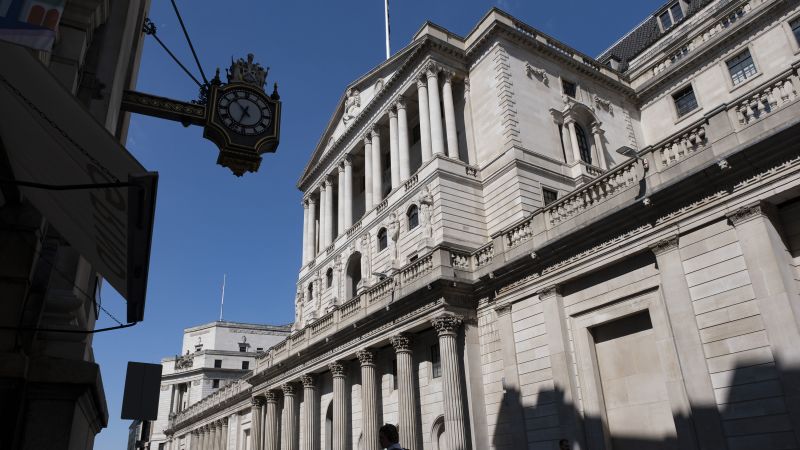The Bank of England (BoE) has cut interest rates for the first time since the start of the pandemic, offering a much-needed reprieve to households struggling with the highest borrowing costs in 16 years.
The decision, announced on Thursday, takes the benchmark interest rate in the UK down to 5% from 5.25%. This marks the end of the longest-running series of successive rate hikes in at least a century, with rates having remained at 5.25% since September 2023.
The decision was a close call, with five members of the BoE's Monetary Policy Committee voting in favour of a reduction, while four opted to keep rates on hold.
BoE Governor Andrew Bailey acknowledged that the decision was âfinely balancedâ, hinting that the bank will proceed cautiously in future rate adjustments. He emphasised the need to bring the period of high inflation to a close, while also expressing concern about cutting rates too aggressively, given the recent strengthening of the UK economy which could potentially drive inflation upwards.
Inflation in the UK has shown signs of easing, falling to 2% in May and remaining at that level in June. This marks the first time inflation has met the BoE's target in nearly three years, largely attributed to a sharp decline in food prices. However, the BoE expects inflation to creep up in the coming months as the impact of the energy price drop fades, before dipping below the 2% target in two years.
The BoE's decision to cut comes a day after the US Federal Reserve (Fed) chose to hold rates steady. However, Fed Chair Jerome Powell suggested that a rate cut âcould be on the tableâ at the September meeting.
While the BoE's confidence in the outlook for consumer prices allowed for a quicker move on rate cuts, the close decision highlights concerns among some policymakers that inflation hasn't been fully tamed. Inflation in the dominant services sector, at 5.7%, remains stubbornly high and a cause for worry.
The BoE has stressed that âmonetary policy will need to continue to remain restrictive for sufficiently long until the risks to inflation returning sustainably to the 2% target in the medium term have dissipated further.â
Economists expect further rate cuts, but there's uncertainty about the timing. EY UK Chief Economist Peter Arnold predicts the next quarter-point cut to happen in November, rather than at the BoE's next meeting in September. Similarly, consultancy Capital Economics anticipates a slower and more gradual reduction in rates than previously expected.
Despite the uncertainty surrounding future rate cuts, the BoE's initial move since March 2020 could provide a much-needed boost to the housing market, as mortgage costs fall. Major lender Nationwide has already introduced a sub-4% fixed-rate mortgage, with other lenders likely to follow suit.
Real estate consultancy Knight Frank expects this move to lead to increased demand and transaction activity in the housing market, particularly as more mortgage rates dip below the 4% psychological threshold. They forecast UK house prices to rise by 3% this year.
The outlook for the housing market is further bolstered by strong economic growth. The Office for National Statistics reported that gross domestic product (GDP) increased by 0.6% in the first quarter of 2024, following a short and shallow recession at the end of 2023.
More recent data, reflecting the Labour Partyâs landslide victory in the UK general election, indicates a strengthening of business confidence in July. New business activity in the manufacturing and services sectors experienced its fastest growth in 15 months.
The BoE's interest rate cut, combined with a strong economic outlook and easing inflation, could set the stage for a more positive outlook for the UK economy and housing market in the coming months.
Article
Business

Bank of England Cuts Interest Rates for First Time Since Pandemic

